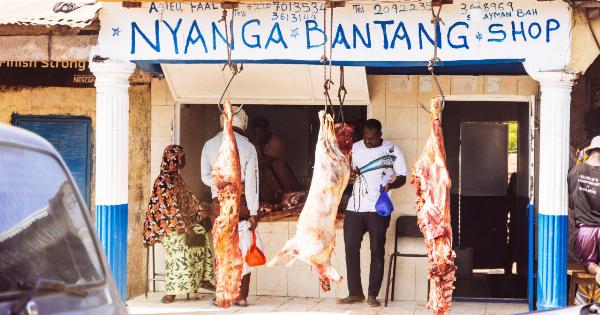Meat consumption has been a part of human diets for centuries. However, excessive meat consumption has been associated with various health issues, including cardiovascular diseases and cancer.
In recent years, studies have suggested that high meat consumption can also affect fertility in both men and women. In this article, we will explore the impact of high meat consumption on fertility.
What Is High Meat Consumption?
High meat consumption refers to the intake of meat that far exceeds the recommended daily intake.
The World Health Organization (WHO) recommends that adults consume no more than 170g of meat per day, while the American Heart Association suggests limiting meat intake to 6 oz per day or less.
How Does High Meat Consumption Affect Fertility?
Studies have linked high meat consumption to decreased fertility in both men and women. In women, high meat consumption can affect ovulation and decrease the probability of pregnancy.
The hormones found in meat, including estrogen and testosterone, can lead to hormonal imbalances in women, disrupting the menstrual cycle and reducing the chances of a successful pregnancy.
In men, high meat consumption has been linked to reduced sperm quality and quantity. The hormones and antibiotics given to animals can find their way into the meat and affect male fertility.
In addition, high levels of saturated fats found in meat can damage the testes and affect sperm production.
Does the Type of Meat Matter?
The type of meat consumed also plays a significant role in its impact on fertility. Red meat, such as beef, lamb, and pork, has been found to be more detrimental to fertility than other types of meat.
In contrast, consumption of poultry and fish has little to no impact on fertility.
Processed meats, such as bacon and sausages, have also been linked to reduced fertility. The high levels of preservatives, additives, and salt found in processed meats can affect hormonal balance and decrease fertility.
Additionally, studies have shown that consuming more than five servings of processed meat per week can increase the risk of infertility by up to 50%.
How Can You Reduce the Negative Impact of Meat Consumption on Fertility?
If you are trying to conceive, reducing your meat intake can help increase your chances of a successful pregnancy. Here are some tips to reduce the negative impact of meat consumption on fertility:.
- Reduce your intake of red meat and processed meats.
- Replace red meat with lean protein sources such as poultry, fish, and beans.
- Choose organic and hormone-free meat options when possible.
- Balance your diet with fresh fruits and vegetables, which can help regulate hormones and improve fertility.
Conclusion
High meat consumption can have a significant negative impact on fertility in both men and women. The hormones, antibiotics, and preservatives found in meat can disrupt hormonal balance and decrease the probability of pregnancy.
However, reducing meat intake, especially red meat and processed meats, and replacing them with lean protein sources, can help improve fertility and increase the chances of a successful pregnancy.






























